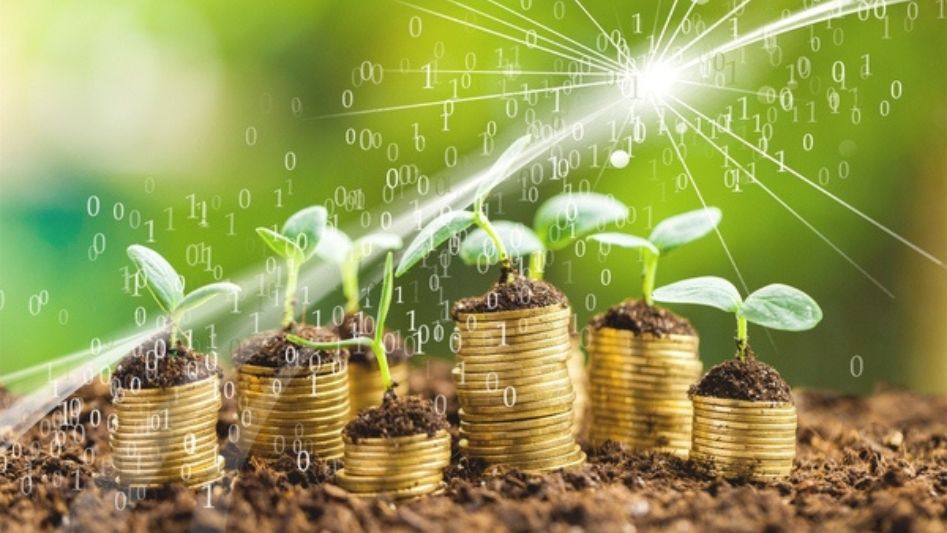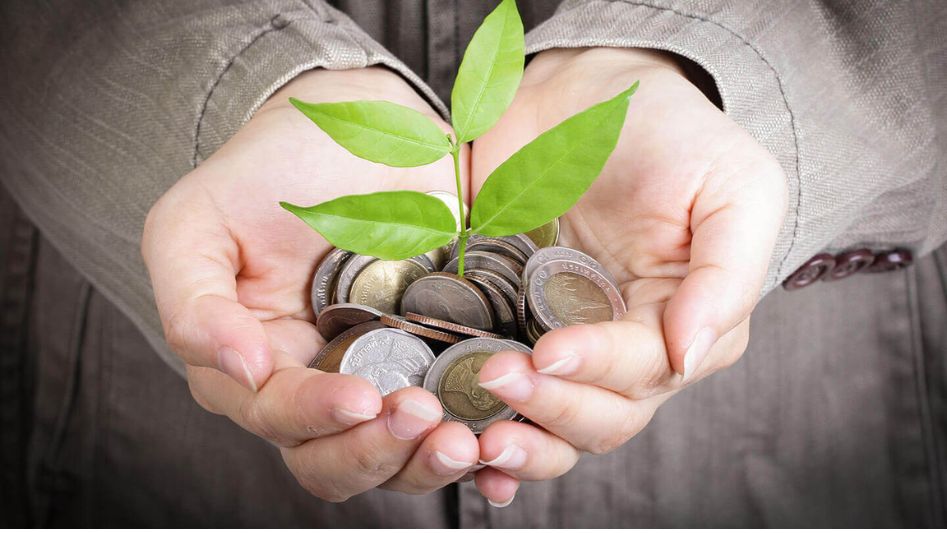HSBC is offering financing options to drive sustainable business practices in the Greater Bay Area to support green initiatives and environmental sustainability.

Table of Content
Introduction
With projects like the Zero-Carbon Building in Kowloon Bay (primary photo), Hong Kong is moving quickly toward a more environmentally friendly future, and Mainland China provides a lot of the hardware for the revolution in renewable energy.
According to the China Green Bond Market Report 2021, the mainland economy had the second-largest green bond market in the world in 2018, expanding to $68.2 billion, up 186% from the previous year. This growth in green financing is not surprising.
As reported in the July 2022 Climate Bond Initiative Hong Kong Green and Sustainable Financial Market Briefings 2021, published in collaboration with HSBC, GSS+ (green, social, sustainability, transition bonds, and sustainability-linked debt instruments) debt coming from Hong Kong doubled last year, reaching US$57 billion.
Green finance hub
Thomas Elliott, Managing Director and Head of Client Coverage, Commercial Banking in Hong Kong, says that HSBC is putting a lot of money into the growth of green industries on the mainland, especially in the Guangdong-Hong Kong-Macao Greater Bay Area (GBA). This is part of the bank’s efforts to improve environmental, social, and governance (ESG).
The many cities that make up the GBA have all made efforts to promote green finance, and although each city in the GBA has its own set of distinguishing qualities, they all work together to complement one another.
According to Mr. Elliott, Hong Kong has developed into an essential funding conduit for enterprises based on the mainland since it is the biggest offshore renminbi market in the world. Last year, Hong Kong Exchanges and Clearing (HKEx) was the leading venue for listing mainland offshore green bonds, with a total value of US$12.7 billion. Also, Hong Kong was responsible for one-third of Asia’s environmentally friendly and sustainable bonds in 2021.
Hong Kong and the GBA are both in a strong position to implement environmentally friendly solutions, roll them out, and scale them up as a result of their long history of serving as a connection between the Chinese mainland and the rest of the globe. Mr. Elliott confirmed that the acceleration and scaling up of development were essential to the transition to a net zero energy system. The best way to do this would be to take innovations made in the GBA to new markets. Finance and cross-border banking skills would be essential to these efforts.
SME hurdles
Elliott says that research done by Economist Impact and paid for by HSBC shows that small and medium-sized (SMEs) businesses all over the world face many of the same problems when it comes to putting ESG principles into practice.
Because the founder, CEO, CFO, and operations chief may all be the same person, small and medium-sized enterprises (SMEs) frequently have limited capacity to adopt new practices. This means that the founder, CEO, CFO, and operations chief must acquire new knowledge and skills and determine how to put them into real-life application. Another challenge is developing a viable business case. The management of a small or medium-sized enterprise (SME) would want to know how the company will benefit and how this value can be evaluated. To quote the eminent mathematician Lord Kelvin, “If something cannot be measured, then it does not exist. [Citation needed]
Embracing environmental, social, and governance (ESG) initiatives almost always necessitates revising the conventional operating model of a company. What exactly does “net zero” imply, for example, and how can they take on greater social responsibility? These are examples of questions that corporate managers need to ask themselves in many different situations. Another point that has to be addressed is how the objectives will be established. For instance, how can smaller businesses decrease the quantity of carbon dioxide that they produce in a measurable way?
Re-Industrialization
Mr. Elliott said, in reference to Hong Kong’s efforts to re-industrialize the city, that Industry 4.0 is fundamentally altering the ways in which businesses produce, enhance, and distribute their goods. New technologies, such as cloud computing, analytics, and the Internet of Things (IoT), are being incorporated into manufacturing processes. They are increasingly using artificial intelligence and machine learning in their factories and other parts of their business.
According to him, “under re-industrialization, a lot of technologies are created with the emphasis on increasing energy efficiency and lowering pollution and waste produced from production.” Re-industrialization refers to the process of returning manufacturing to the United States.
For instance, one of our clients was a pioneer in the development of a battery energy storage system that is used to power gear used on building sites. The method gets rid of the need for loud and dangerous diesel generators, cuts emissions, and lowers the risk of fire. All of these things help the building industry grow in a way that is better for the environment.
At HSBC, we are also dedicated to assisting the next generation of top technology firms, and we help these businesses develop both domestically and worldwide. Mr. Elliott noted, “we have developed a $1.13 billion senior debt fund that is aimed at aiding rapidly developing technology businesses in the GBA, as well as being open to enterprises across the mainland.”
The GBA+ Technology Fund managed by HSBC focuses on six sub-sectors, one of which is climate technology, that are expected to profit from structural changes in consumption, digitalization, and automation. The goal is to support existing or prospective early-stage, high-growth clients operating in the technology sector across the GBA. The objective is to support these clients with a full spectrum of financing needs, ranging from working capital to capital expenditure and even more bespoke, event-based needs like fund-raising bridges or acquisition financing.
The transition toward lower carbon output

At the same time, HSBC is dedicated to aligning the financed emissions from its portfolio of clients to net zero by the year 2050 or sooner, which is in accordance with the objectives of the Paris Agreement. Mr. Elliott said, “Our goal is to provide between $750 billion and $1 trillion in financing and investments for the transition by 2030 to help reach this goal.”
Along with four other financial institutions in the year 2020, HSBC joined the Hong Kong Monetary Authority (HKMA) Alliance for Green Commercial Banks and assumed the role of a cornerstone member. The purpose of the alliance is to create a green community in emerging markets that is capable of collectively financing the infrastructure and business solutions required to advance sustainable economic development. The alliance brings together financial and research institutions as well as innovative technology providers.
Through the alliance, HSBC works closely with the International Financial Corporation, the Hong Kong Monetary Authority, and the other banks to encourage clients to use green strategies, promote best practices in green products and services, and open up new business opportunities that will help economies switch to a greener model.
Sustainable solutions
Beyond the conventional green bonds and loans that are generally employed by major businesses and institutions, there has been a growth in the variety and inventiveness of green and sustainable financial instruments, which have grown considerably more diversified in recent years. There were already goods available on the market geared toward various business sizes and sectors.
HSBC provides a variety of products and services for SMEs with lower thresholds (HK $10,000-US $1,274), including Green Trade Loans, Sustainable Supply Chain Financing Scheme, and Green Guarantee Letters.For example, HSBC has given Sustainable Performance-Linked Loans to companies that have met ESG goals so that those companies can get lower interest rates.
The GBA Sustainability Fund
Mr. Elliott states, “particularly in the GBA, we are seeing greater demand from firms for both green and sustainability-associated loans.” HSBC announced the GBA Sustainability Fund in May with the intention of providing US$5 billion to assist in driving sustainable business development. This will enable enterprises to seize sustainable opportunities while simultaneously transitioning to a low-carbon economy. “
The funds are given to a wide range of businesses in the GBA, like manufacturers and real estate developers, that are working to reduce carbon emissions or are in industries like climate change adaptation, pollution prevention, clean transportation, renewable energy, sustainable water resource management, and wastewater management.
A suite of resources, such as free ESG training sessions and assessment tools, will be made available to successful loan applicants in addition to financial assistance. These resources will help businesses take steps to cut emissions, improve efficiency, and strengthen their reputations as businesses that care about the environment.
The plan has been warmly accepted, and there have been success stories across a variety of sectors as a result. For instance, Geely, a global car manufacturer based in mainland China, recently had an offshore sustainable club loan arranged for it. This loan will support Geely’s research and development efforts, as well as its production of new energy vehicles and its plan to become carbon neutral by the year 2045.
In terms of the success of its own sustainability initiatives, HSBC has set the year 2030 as its goal to reach net zero for all of its activities around the globe. The goal was for all business activities that were paid for by loans from customers to leave no net carbon footprint by the year 2050.
Beyond banking
HSBC has also set up a group of front-line commercial banking employees who have been certified by an outside organization to help clients with agreements related to sustainable finance.
In addition to receiving financial assistance, successful loan applicants are eligible to receive sustainable product offerings as well as a suite of resources. These tools, which include free ESG training sessions and assessment tools, are meant to help businesses take actionable steps to cut their emissions, improve their efficiency, and strengthen their reputations as environmentally responsible businesses.
Customers can take advantage of a subsidy to obtain an assessment for loan applications from the Hong Kong Quality Assurance Agency’s SME Loan Green e-Assessment Platform. Customers can also take advantage of a subscription fee offer for Diginex, an online platform that helps businesses track and report on environmental, social, and governance (ESG) and climate-related issues faster and cheaper.
Conclusion
It should come as no surprise, then, that green finance is also expanding at a rapid pace. According to the China Green Bond Market Report 2021, the mainland economy had the second-largest green bond market behind the United States, growing to $68.2 billion in the previous year, an increase of 186% from the previous year. In addition to receiving financial assistance, successful loan applicants are eligible to receive sustainable product offerings as well as a suite of resources. These resources, which include free ESG training sessions and assessment tools, are designed to assist businesses in taking actionable steps to cut their emissions, improve their efficiencies, and strengthen their credentials as environmentally responsible businesses. Customers can take advantage of a subsidy to obtain an assessment for loan applications from the Hong Kong Quality Assurance Agency’s SME Loan Green e-Assessment Platform. Customers can also take advantage of a subscription fee offer for Diginex, an online platform that helps businesses track and report on environmental, social, and governance (ESG) and climate-related issues faster and cheaper.
FAQ

What is the difference between green and sustainable finance?
Green finance has a broader scope as it also covers other environmental goals (such as biodiversity protection and restoration), and sustainable finance extends its domain to environmental, social, and governance factors. Climate finance provides funds for addressing climate change adaptation and mitigation. Green finance has a broader scope as it also covers other environmental goals (ESG).
What are the barriers to green finance?
The results of the thematic analysis showed that seven different themes represent barriers.
- The inability of various financial institutions
- Capital Limitations
- A rigorous set of policies and regulations
- A poor framework for the finance.
- Political constraints
- It is thought to have a low return on investment and a high risk factor, and
- It is difficult to obtain access.
Why is green financing important?
Green finance helps create and implement sustainable business models, investments, trade, economic, environmental, and social projects because it makes it easier for financial instruments and services to flow.
What are the main barriers to sustainable development?
The following are examples of common obstacles to making changes toward sustainability:
- Managers’ priorities that compete with one another
- Protecting the environment and investing in people had to take a back seat to making as much money as possible.
- Organizational systems are not adequate to manage the job.
- Insufficient financial resources are available to invest in novel approaches to both the design and management of operations.
You May Also Like
HOW HYDROGEN COULD BE THE FUTURE OF GREEN STEEL
WHAT IS AN ESG SCORE AND HOW IS IT CALCULATED?
HOW CO2 COULD BE THE FUTURE OF ENERGY STORAGE?
ESG REPORTING 101: ALL YOU NEED TO KNOW & HOW TO GET STARTED
WHAT IS ESG? DEFINITION AND MEANING
